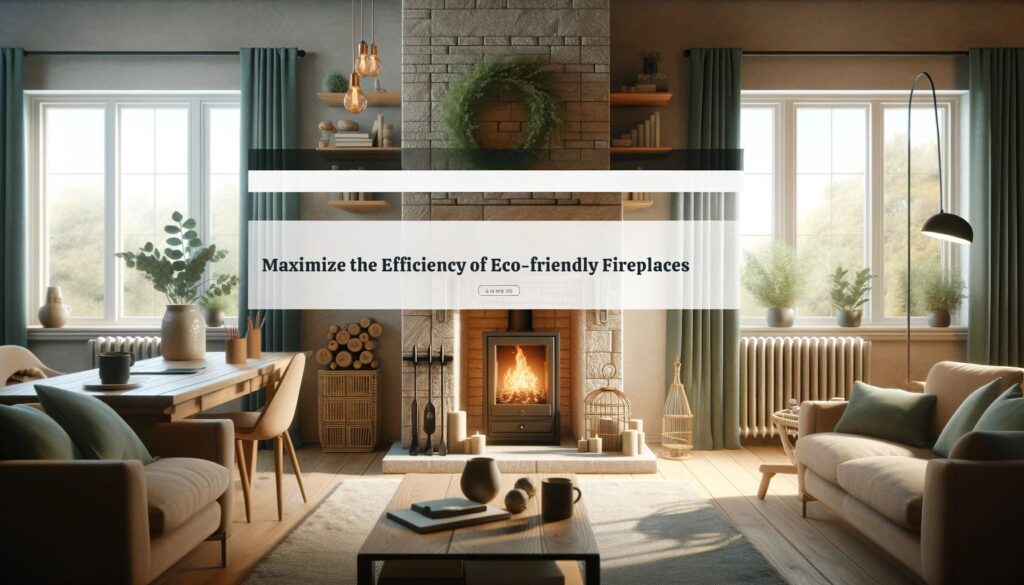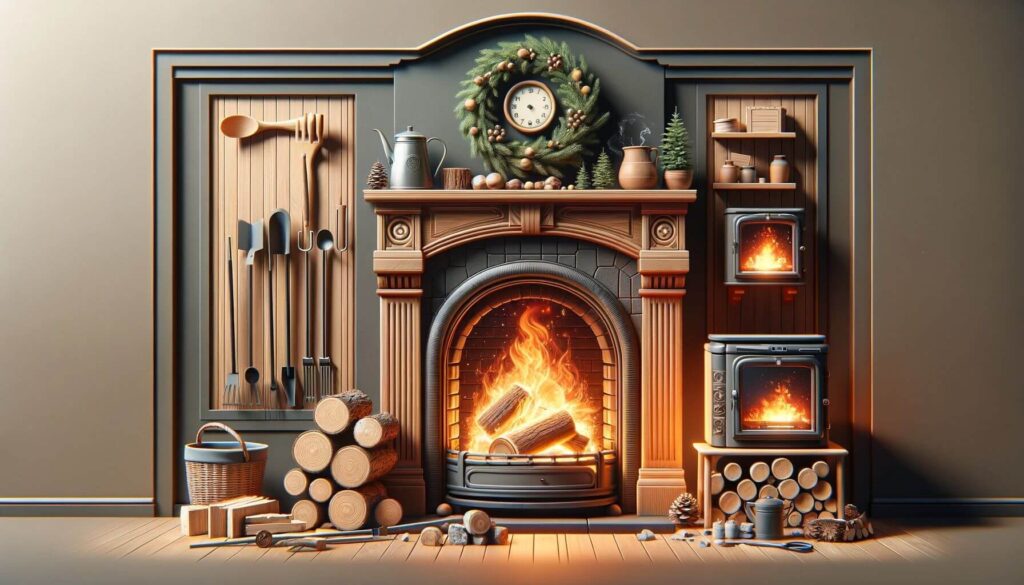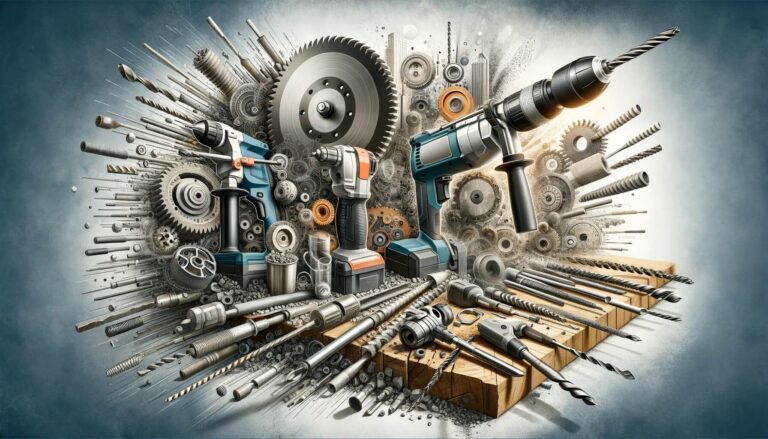In the heart of every cozy home, fireplaces offer more than just warmth; they create a hub of comfort and relaxation. However, in today’s environmentally conscious world, the significance of eco-friendly fireplace use cannot be overstated.
At GWS Masonry, we understand the delicate balance between enjoying the luxury of a roaring fire and the responsibility we owe to our planet.
This is why we advocate for maximizing efficiency in fireplace operation, an approach that not only benefits the environment but also enhances the functionality and cost-effectiveness of your fireplace.
| Key Points | Details |
|---|---|
| Choosing Eco-Friendly Fireplaces | Opting for electric, gas, or bioethanol fireplaces reduces environmental impact. |
| Upgrading and Retrofitting | Fireplace inserts, advanced dampers, and efficient accessories enhance overall efficiency. |
| Regular Maintenance | Well-maintained fireplaces ensure optimal performance and longevity. |
| Smart Operation | Programmable timers, thermostat controls, and smart home integration lead to more efficient use. |
| Behavioral Changes | Simple adjustments in fireplace usage can lead to greater energy savings. |
Understanding Fireplace Efficiency
An efficient fireplace is one that provides maximum warmth with minimal environmental impact. Several factors contribute to this efficiency.
First, the type of fireplace and its fuel source play a crucial role. Electric, gas, and modern wood-burning stoves designed for reduced emissions are examples of efficient options.
Secondly, the design of the fireplace, including features such as improved heat distribution systems and advanced venting, can significantly enhance efficiency.
Our fireplace experts focus on installations that optimize heat output while minimizing heat loss. This includes ensuring proper insulation and utilizing materials that retain and radiate heat effectively.
The Environmental and Energy Consumption Impact
Fireplace efficiency isn’t just about personal benefits; it has broader implications for our environment. An inefficient fireplace can lead to higher energy consumption, which not only increases your utility bills but also contributes to a larger carbon footprint. Excessive wood burning in traditional fireplaces can lead to increased air pollution, releasing particles and toxins that harm air quality.
Conversely, an efficient fireplace minimizes these environmental impacts. It uses less fuel to produce the same amount of heat, reducing emissions and conserving energy. In the case of wood-burning fireplaces, using dry, well-seasoned wood, and ensuring complete combustion can significantly reduce harmful emissions.
Therefore, the efficiency of your fireplace is a crucial factor that influences not only your home’s warmth and comfort but also your energy bills and, importantly, your environmental impact.
At GWS Masonry, we are committed to guiding you towards the most efficient and eco-friendly fireplace options, ensuring your comfort doesn’t come at the expense of our planet.

Types of Eco-Friendly Fireplaces
In the pursuit of reducing our environmental footprint, the type of fireplace we choose plays a pivotal role. We specialize in offering a range of eco-friendly fireplace options, each with its unique attributes and efficiency levels.
Electric Fireplaces
Electric fireplaces are a popular choice for their convenience and low environmental impact. They don’t emit any fumes or smoke and are highly efficient in converting energy to heat. The downside is that they rely on electricity, so their eco-friendliness is partly dependent on how the electricity is generated.
Gas Fireplaces
Gas fireplaces are another efficient option. They burn cleaner than wood and are known for their consistent heat output. Modern gas fireplaces can be highly efficient, with some models offering efficiency ratings of over 90%. However, they do rely on fossil fuels, which is a consideration for the environmentally conscious user.
Ethanol Fireplaces
Ethanol fireplaces burn bioethanol, a renewable energy source made from biological materials. They are smokeless and don’t require a chimney or flue, making them a versatile option. While they are eco-friendly, their heat output is generally lower compared to electric or gas fireplaces.
Choosing the right eco-friendly fireplace depends on your specific needs, preferences, and the energy sources available to you. Our team at GWS Masonry can help you navigate these options to find the best fit for your home and the environment.
Tips for Efficient Traditional Fireplace Use
For those who cherish the traditional wood-burning fireplace, efficiency and environmental responsibility can still be achieved with the right practices.

Choosing the Right Wood
Always burn dry, seasoned wood. Wet or green wood burns inefficiently and produces more smoke and particulates. Hardwoods like oak or maple are preferable as they burn longer and produce more heat.
Efficient Burning Practice
Ensure your fire burns hot and clean. A smoldering fire produces more smoke and pollutants. Regularly remove ashes to allow better air circulation, which aids in efficient burning.
Maintenance is Key
Regular cleaning and maintenance of your wood-burning fireplace improve efficiency and safety. A clean fireplace allows for better airflow and more efficient burning. It’s also essential to have your chimney cleaned and inspected annually to ensure there are no blockages or creosote buildup, which can hinder efficiency and pose a fire hazard.
Upgrading Your Fireplace for Efficiency
Improving the efficiency of your existing fireplace can be a game-changer in terms of both environmental impact and heating costs. At GWS Masonry, we offer various options for upgrading or retrofitting your fireplace:
Fireplace Inserts
One of the most effective ways to enhance efficiency is through the installation of a fireplace insert. These units fit into your existing fireplace, transforming it into a more efficient heat source. Inserts are available for wood, gas, and even electric fireplaces and are designed to reduce heat loss while maximizing heat output.
Damper Upgrades
An old or poorly functioning damper can lead to significant heat loss. Upgrading to a top-sealing damper improves the seal of the fireplace when not in use, preventing warm air from escaping up the chimney.
Efficiency-Enhancing Accessories
Other accessories, such as heat exchangers, can be added to increase the amount of heat distributed into the room. Glass doors not only enhance safety but also reduce the amount of warm indoor air drawn into the fireplace.
By upgrading your fireplace, you can enjoy the warmth and ambiance it provides more efficiently and eco-consciously. Our fireplace experts can guide you through the best options for your specific needs.
Best Practices in Fireplace Maintenance
Regular maintenance is crucial for the efficiency and longevity of your fireplace, regardless of its type.
Routine Cleaning
Regular cleaning of the fireplace and chimney is essential. For wood-burning fireplaces, this means removing ash and soot buildup, which can impede airflow and efficiency. Gas and electric fireplaces also require periodic cleaning to ensure they are free of dust and debris.
Annual Inspections
Have your fireplace and chimney inspected annually by a professional. This is especially important for wood-burning fireplaces, where creosote can build up in the chimney, posing a fire hazard and reducing efficiency.
Check for Damages
Regularly inspect your fireplace for any signs of damage or wear, such as cracks or deteriorating mortar in the firebox. Prompt repairs can prevent more significant issues down the line.
Mind the Surroundings
Ensure that the area around the fireplace is clean and free of flammable materials. Proper ventilation is also crucial for safety and efficiency.
Adhering to these maintenance practices helps in ensuring your fireplace operates at peak efficiency. Our team is always ready to assist with professional maintenance services, ensuring your fireplace remains a safe and efficient centerpiece in your home.
Technology and Techniques for Smart fireplace Use
Embracing modern technology can significantly enhance the efficiency of your fireplace. At GWS Masonry, we understand the importance of integrating smart solutions into fireplace design and operation.

Thermostat Controls
Installing a thermostat control for your gas or electric fireplace can greatly improve efficiency. This allows for precise temperature control, ensuring that the fireplace operates only when needed and at optimal levels, avoiding energy waste.
Programmable Timers
Timers offer the convenience of pre-setting operation times. This means your sustainable fireplace can warm up your home just before you arrive, and turn off automatically when it’s not needed.
Remote Control and Smart Home Integration
Many modern fireplaces can be integrated into smart home systems. This allows for remote control via smartphone apps, enabling you to adjust settings from anywhere, ensuring efficient operation.
Behavioral Techniques
Simple behavioral changes can also contribute to efficiency. For instance, closing the doors of unused rooms can prevent heat loss. Similarly, lowering the thermostat in rooms with a fireplace can reduce overall home heating costs.
Adopting these technologies and techniques not only enhances the comfort and convenience of your fireplace but also plays a significant role in energy conservation.
Environmental Benefits of Eco-Friendly Fireplace Use
Sustainable fireplace use has a direct positive impact on the environment. By maximizing the efficiency of your fireplace, you contribute to a larger eco-friendly initiative.
Reduced Carbon Footprint:
Efficient fireplaces, especially those using renewable fuels like bioethanol, or electricity from renewable sources, have a lower carbon footprint. By consuming less energy or using cleaner fuels, these fireplaces emit fewer greenhouse gases.
Improved Air Quality
A modern ecofriendly fireplace will produce fewer pollutants. This is particularly important in wood-burning fireplaces where complete combustion reduces the emission of particulates. Cleaner burning means better air quality both inside and outside your home.
Conservation of Resources
Efficient fireplaces use less fuel, whether it’s wood, gas, or electricity. This conservation of resources aligns with broader environmental goals like sustainable forest management and reduced fossil fuel dependence.
So our commitment to eco-friendly fireplace use is not just about enhancing the efficiency of your fireplace; it’s about contributing to a healthier planet. By choosing an environmentally friendly fireplace solutions, you play a part in reducing environmental impact and promoting sustainable living.
As we conclude our journey through the realm of eco-friendly fireplace use and efficiency, it’s clear that the choices we make in our homes have far-reaching impacts. At GWS Masonry, we’ve explored various facets of fireplace efficiency, from choosing the right eco-friendly model to embracing modern technologies and maintenance practices.



